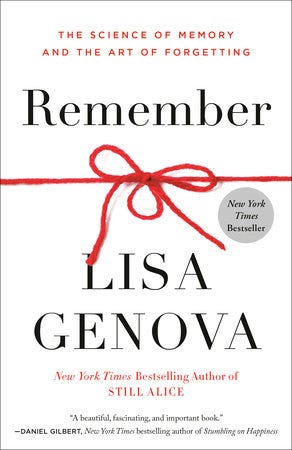The Science Book That Made Me Laugh As It Taught Me How to Improve My Memory
'Still Alice' author Lisa Genova's 'Remember' is a funny and insightful look at how to amplify your memory and stave off Alzheimer's disease
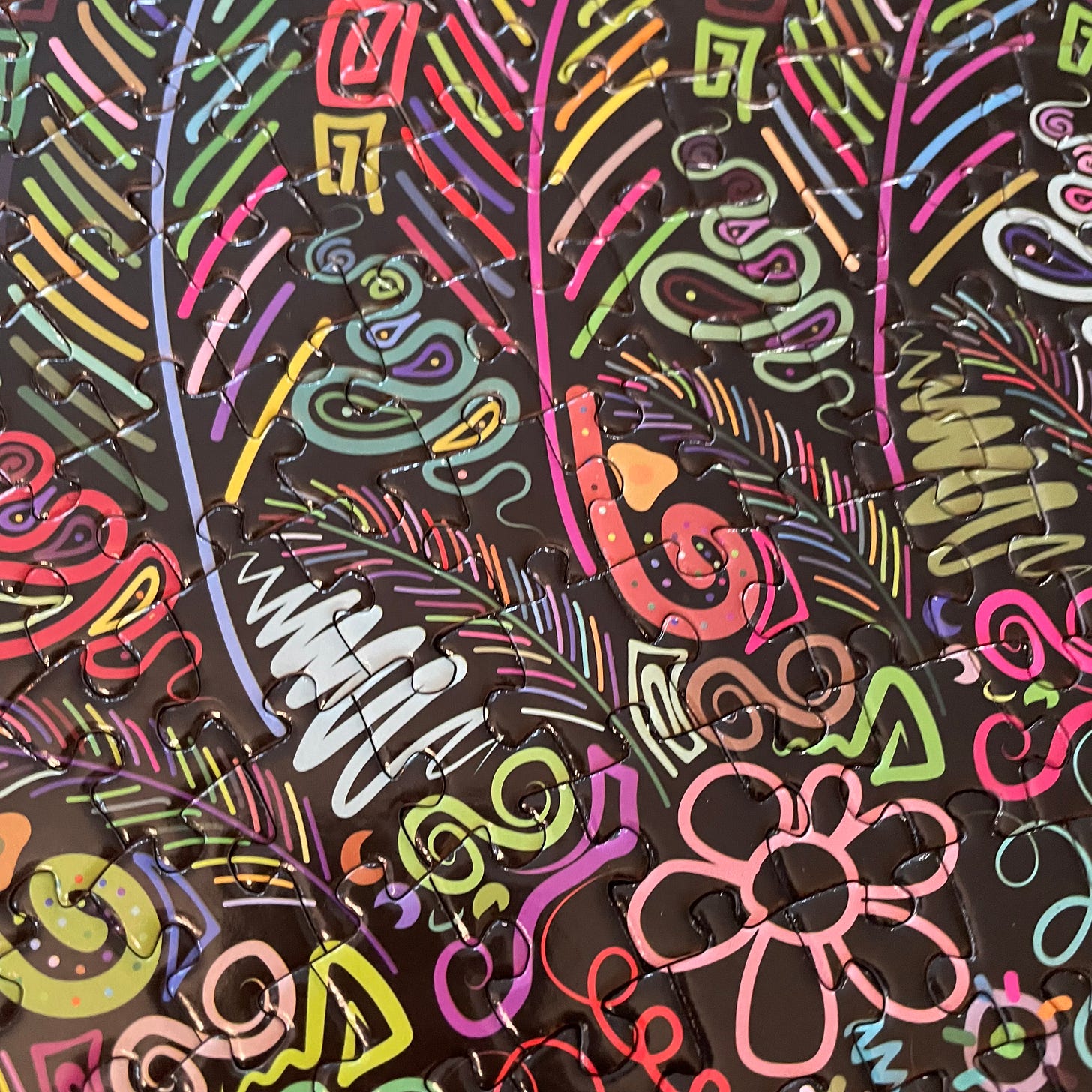
I’m in New York for a few days to attend Focus Art Fair in Chelsea with my boyfriend, Drew, whose abstract artwork (see more on his Instagram) is on display in booth C-17 (third floor), and to visit friends and family. More on what I’ve been up to and a science book recommendation below, but here are a few photos from the art fair, which I highly recommend checking out. It’s on through Sunday, May 12. There are huge, moving, colorful installations on the top floor that are truly fascinating.
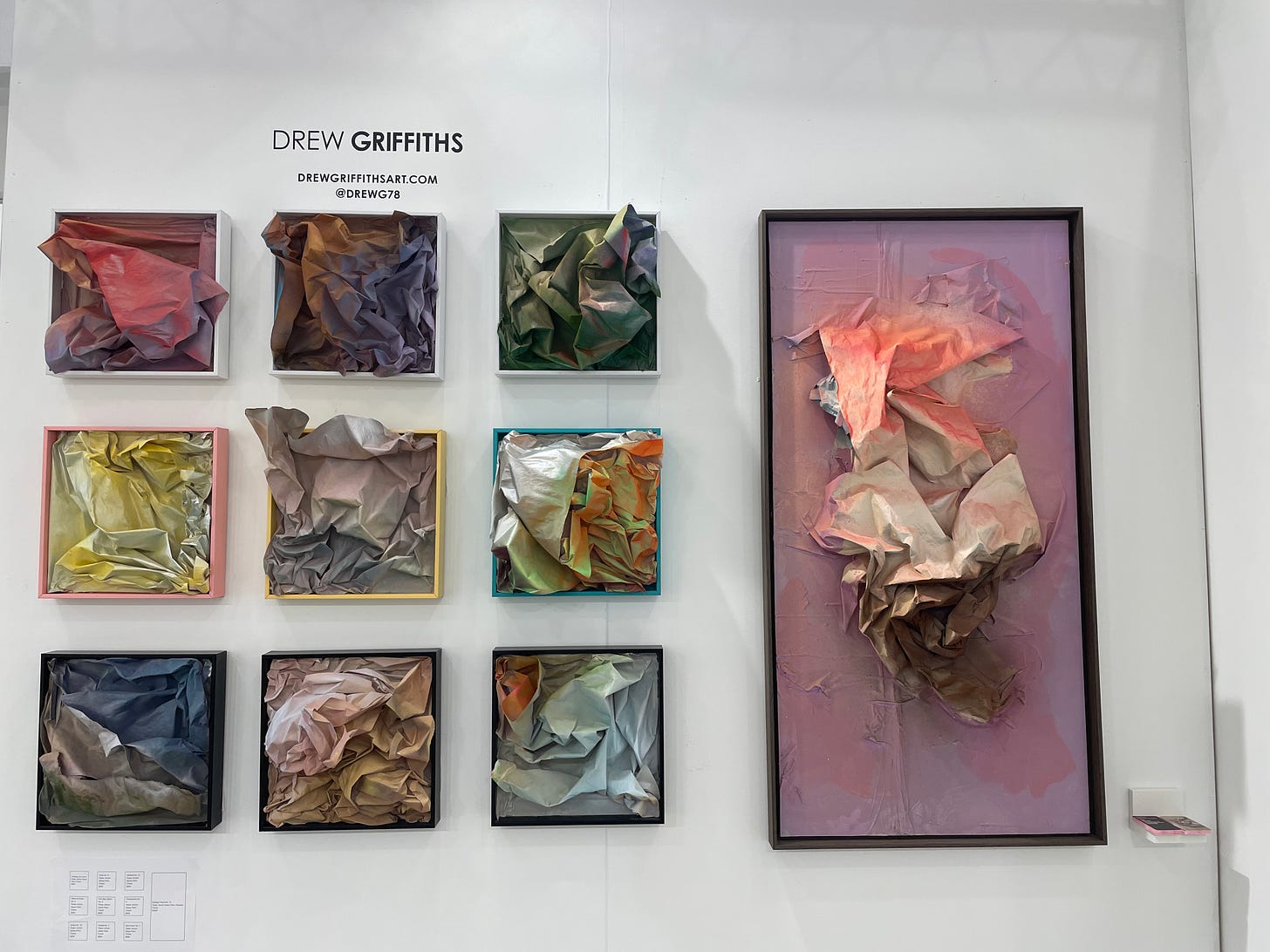
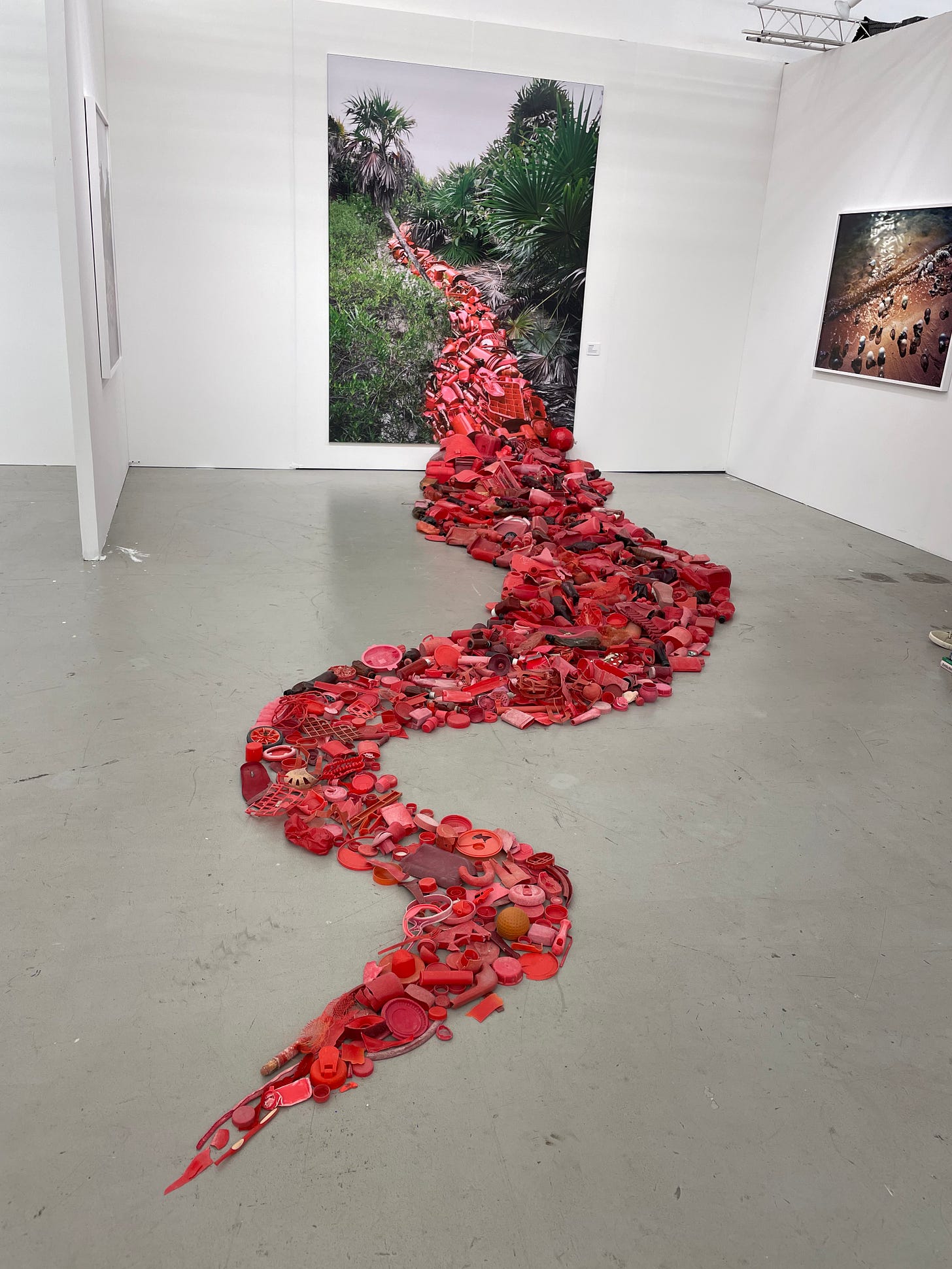
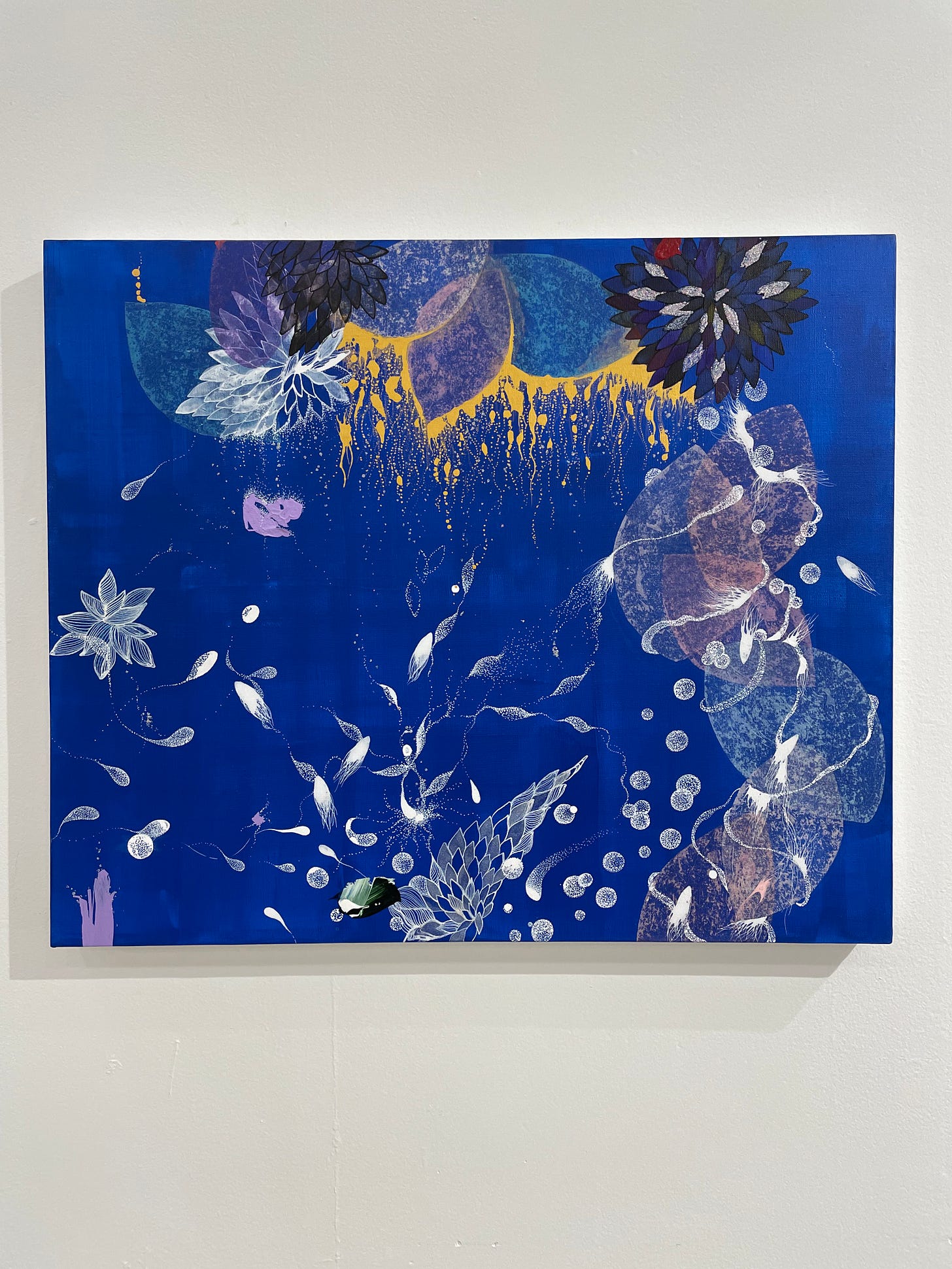
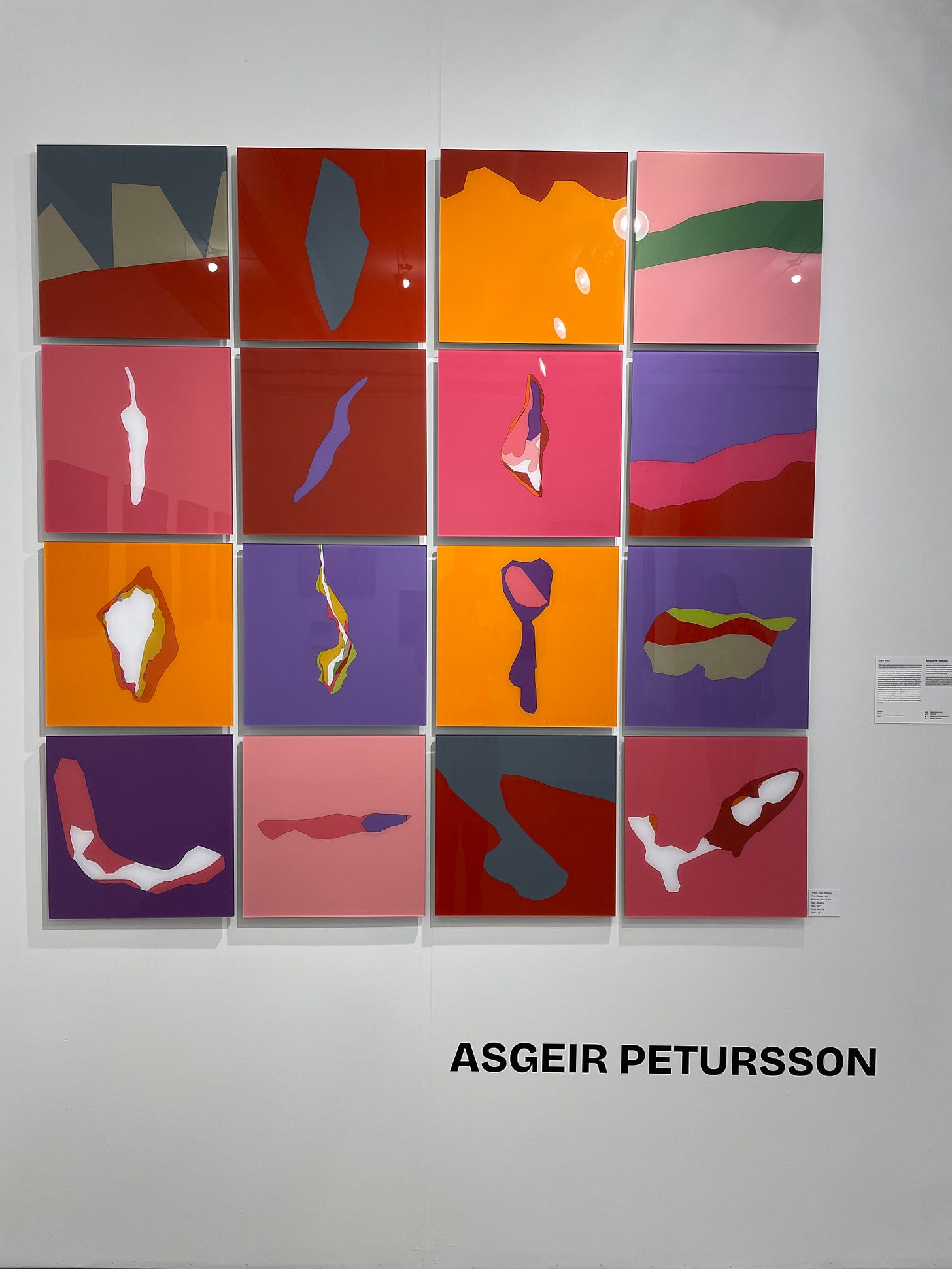
Now onto me…As I’ve alluded to here, the past eight months have been very challenging. I’ve been doing my usual work and trying to stay healthy by walking at least five miles a day (reading fast-paced books on the treadmill has been key for me) and being a caregiver for my mom and sometimes it feels utterly overwhelming, but I’m trying to reclaim my time and focus on what’s most meaningful to me.
At
, I wrote about why I mostly stopped posting on social media for the sake of my mental health, and at the Brevity blog, I wrote about how vulnerable it is to write about the caregiving aspect of my life.Given my mom’s memory issues, the topic of dementia generally and my own memory and how to preserve it have been on my mind, so I’ve been reading as much as I can about it. Here on Substack, I highly recommend
and , who are both writing about being caregivers for their parents with dementia. My Father’s Brain: Life in the Shadow of Alzheimer’s by Sandeep Jauhar is a heartbreaking and powerful memoir about the science of Alzheimer’s and the personal toll it took on the author, who’s a physician, and his family. It showed me that neither being in the medical profession nor having siblings eliminates the challenges of being a caregiver, and in some ways, perhaps made the struggle more frustrating.I also discovered the amazing blog Which me am I today? and memoirs of Wendy Mitchell, who was diagnosed with early-onset Alzheimer’s, via this post on whether readers should worry about developing dementia from [B]OLD AGE by
. I’ve read the first two of Wendy’s books, Somebody I Used to Know and What I Wish People Knew About Dementia. Somebody I Used to Know was especially insightful as a first-person account and taught me so much about what it’s like to know your memory is fading and along with it, your lifestyle and so much of what you’ve gotten used to over many decades. Not everyone has the capacity Mitchell had to be pro-active about maintaining her independence for as long as she did, but her hacks and perspective are truly enlightening. She passed away earlier this year, and even that was done on her terms.In the course of my research, I read the novel Still Alice by New York Times bestselling author and neuroscientist Lisa Genova, which was adapted into a movie starring Julianne Moore. While it’s fiction, it’s based in Genova’s research (plus her personal perspective, since her grandmother had Alzheimer’s), I also found it very helpful in understanding what a person going through the process of losing their memory over a long time period feels, and how that impacts her family members, and Genova did an amazing job of portraying that progression with empathy.
Lisa Genova has a TED Talk, “What you can do to prevent Alzheimer’s,” which you can watch or listen to for yourself:
Her book, Remember: The Science of Memory and the Art of Forgetting, delves into the topic more fully, with a broader view not specifically about preventing Alzheimer’s but about the purpose of memory that both offers practical tips on improving your memory and is also extremely funny. It was a joy to read. While I sometimes feel like scientific or self-help books often feel more like something I’m doing for the purpose of improving my mind or learning, I don’t necessarily enjoy the process. Remember was actually fun!
What I found so interesting about Remember is the tone. Genova isn’t trying to tell readers they should be trying to remember everything all the time; in fact, my takeaway was the exact opposite. She shares a story about parking her car in a parking garage on her way to give a talk and forgetting where she parked. The culprit wasn’t her memory per se, but the fact that she was in a rush and didn’t pay close attention to where she parked. If she had, she likely wouldn’t have forgotten.
The way she dives into how memories are made and why we do or don’t remember certain things, from personal experiences to the exact shape of company logos or what’s on a penny, is fascinating, and I think anyone who writes memoir or essays will find it useful:
But retrieval isn’t like selecting an item on a DVD menu or a YouTube channel and pressing PLAY. We don’t read our memories like a book or play them like a movie. Visual memory isn’t like looking through your smartphone photo library, a collection of photos that can be zoomed in on and out of. You’re not viewing a photograph. Remembering is an associative scavenger hunt, a reconstruction job that involves the activation of many disparate but connected parts of the brain. We remember memories; we don’t replay them. Retrieval of a memory happens when one part of the memory is stimulated, triggering activation of the linked memory circuit.
It’s been a few months since I read the book, but it’s lingered with me, although not all of it with crystal clarity, as befitting her message. I’m probably not going to remember every single thing I liked about it or found helpful, although paging back through it, some parts stood out, especially her recommendations for how to improve your memory, which include: getting out of your routine and trying new experiences, getting off your devices, repeating key moments by telling a friend, keeping a journal, and, one that shocked me the most, using social media. Yes, even though she suggests staying off your phone while going about your daily life to pay better attention and lock in memories, she also suggests documenting your life on social media or in a life log and then reviewing it later can help you remember what you’ve done.
And as for that sense of humor, she suggests using your imagination for important things you want to recall and this is her example:
If I need to remember to pick up chocolate milk at the grocery store, I can imagine Dwayne “The Rock” Johnson milking a chocolate brown cow and Tina Fey lying beneath the udder with her mouth open, chocolate milk splattering all over her face. Make the image as wild and unique as possible, and you’ll be much more likely to remember it.
Lastly, Genova doesn’t shy away from the second part of her subtitle “and the Art of Forgetting.” In my layperson’s summary of that message, she’s basically saying that we naturally forget things that aren’t that important to us, and that we shouldn’t feel bad about forgetting things here and there. If we truly want to remember a task or a plan or something that’s happened, there are tools we can employ to do so, but the average person is always going to forget something, like I forgot the mushroom jerky I bought specifically to take to New York. That’s okay, and not a sign that our memory is deteriorating.
I’m off to drink my watermelon Hal’s seltzer, which I only seem to be able to find in New York, and enjoy a very welcome day off. I’ll be sharing more from the art fair on Instagram.
Looking for a sexy read? My collection of erotic stories Lap Dance Lust is out now print at Bookshop and Amazon (or your local bookstore or library) and ebook. Want to pen your own smut? Check out my craft guide How to Write Erotica in print at Bookshop and Amazon (or your local bookstore or library), ebook, and audio. See more of my erotica titles here.





